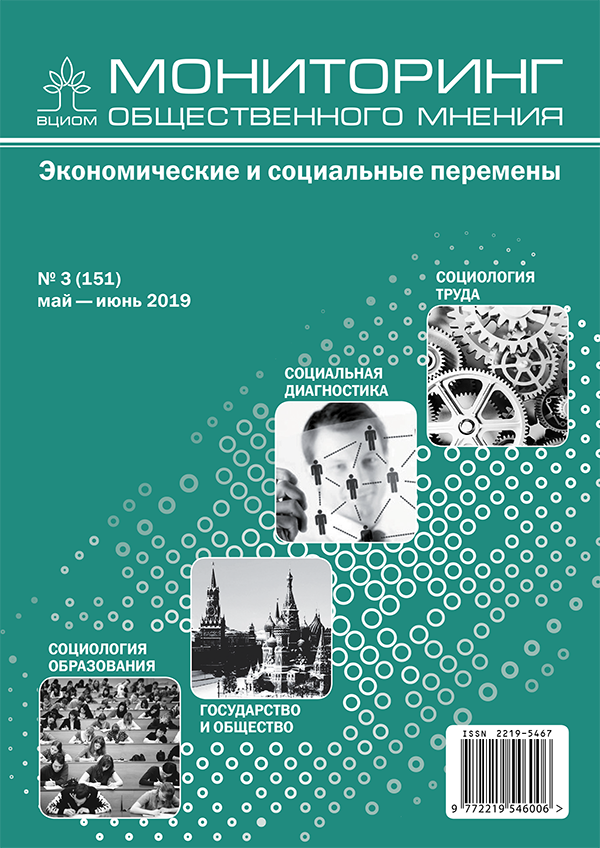Russian Public Demand for State Assistance: Social Investment or Social Support?
DOI:
https://doi.org/10.14515/monitoring.2019.3.19Keywords:
public opinion, public demand for state support, social investment, social support, workfare policies, welfare attitudes, social contractAbstract
Drawn on the data of an all-Russian representative survey conducted by the Institute of Sociology of the Russian Academy of Sciences in spring 2018, the paper examines the Russians’ demand for state support to solve daily problems. Arranging demands into three groups - labor market policy, social investment, and social support – the authors argue that the first group appears to be the most common. Labor market policies are important for young respondents struggling to access good jobs. Social assistance from the state is demanded by individuals who have a specific personal situation, more precisely, who have financial and housing problems which they are unable to tackle themselves. The group of Russians demanding social investment is extremely heterogeneous. The most prosperous part of the Russian population prefers to remain independent of the state as they do not face any problems they have to tackle. The obtained results show that the government should differentiate social policies to respond to public demands taking into account the heterogeneity of demands and their Russian specifics.
Acknowledgement. The paper uses the results of the project “Social policy, social stratification, components of social well-being and inequalities in Russia: an analysis of interactions at different life stages” as part of the HSE Basic Research Program for 2018.






